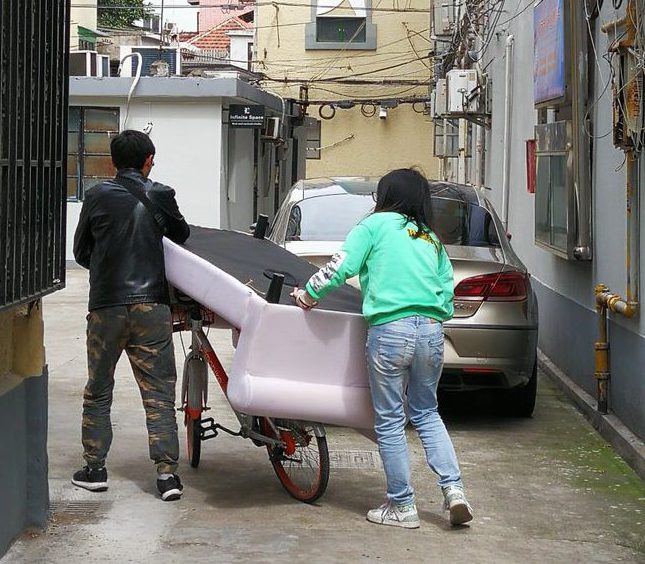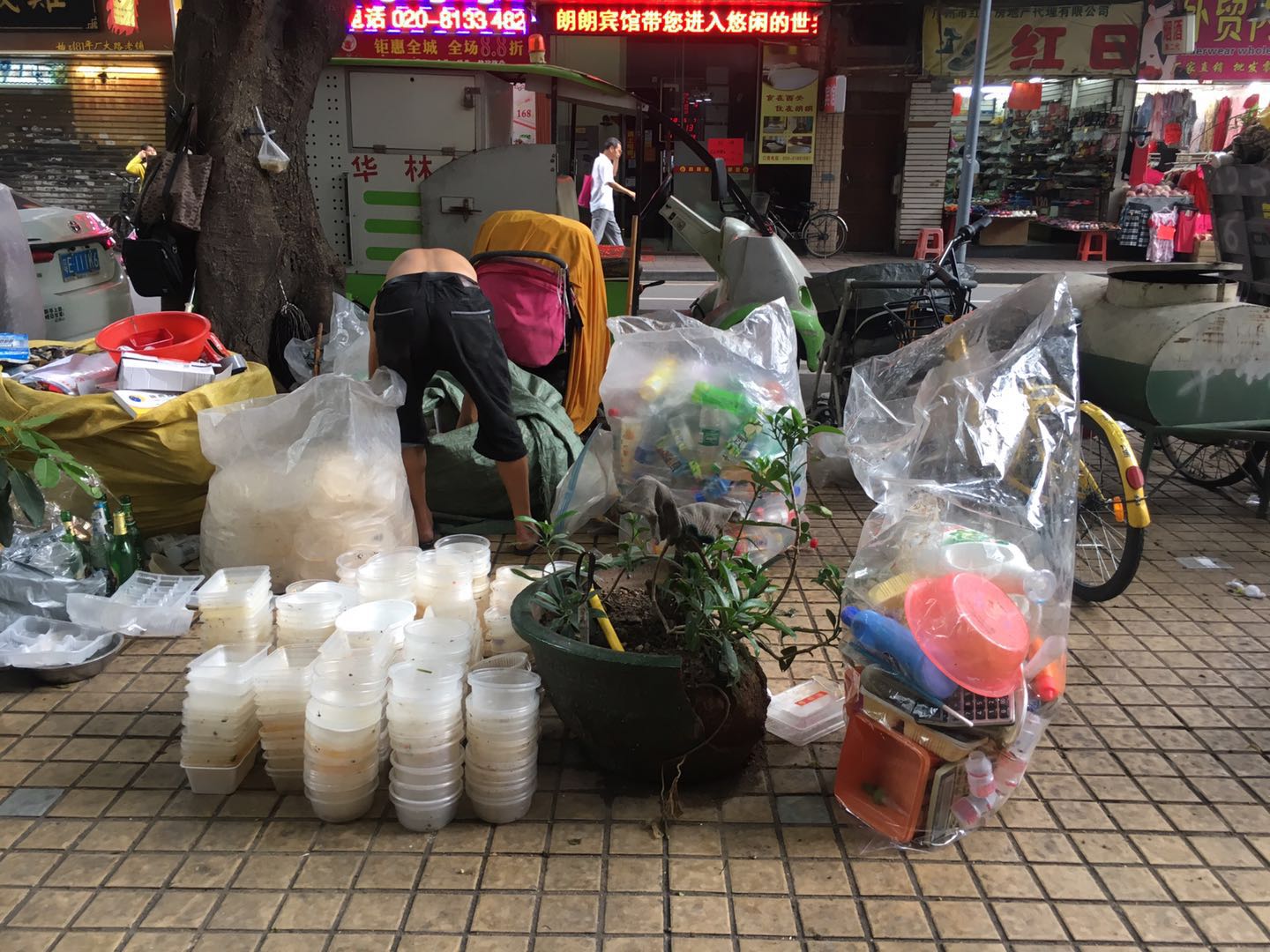China’s recent waste import ban has led to increased conversations globally on the topic of waste management. In China, one conversation that comes up in particular, among the general public and Chinese government alike, is the need to have a better system of household waste categorization for the millions of residents that live in Shanghai. The call is for a sorting system that is more aligned to those currently in place in the west where individuals categorize different types of rubbish into separate bins at the point of disposal.
But, adopting the kind of system used in countries like the UK, for example, as a model for categorizing household waste in China, reveals a lack of understanding about how both systems work.
First, it assumes that this model of recycling household waste is efficient, when in fact, beyond the sorting part, the whole structure of the UK’s recycling system is geared towards exporting the waste to other countries, mainly China, for processing. Secondly, it fails to recognize the existence and efficiency of waste categorization by individual waste pickers in cities across China.
Some Context
Pushing for the categorization of household waste is a positive step in the right direction, yet the underlying issue is a systemic one, in which even if residents categorized their waste 100%, the system itself would undermine those efforts by dumping it all into the same rubbish truck. Categorization of waste needs maintaining from when it is placed in the bin, right through to collection, transportation and disposal.

In Shanghai, there is an increased number of initiatives promoting better education of urban residents to sort the waste coming out of their homes. This is something civil society and the Chinese government is working hard to promote, with a regulation in March 2017 to make sorting of domestic waste compulsory. The legislation puts plans into place for a waste sorting system by the end of 2020, piloting compulsory sorting in Shanghai, Beijing, Tianjin and other Chinese cities. But sustaining long-term changes in consumer behavior is proving to be a huge barrier to success.
Residents in Shanghai know that the best way to deal with categorizing waste from your house is simply to leave it on the street, or by a community rubbish bin, and let the waste pickers deal with categorizing and selling it up the value chain for re-processing. As it stands, this is currently the most efficient way to sort household waste in Shanghai.
The Cities Waste Pickers
In China, waste is considered much more of a value commodity than it is in more developed western countries. In China, it is a resource that gets reused to feed the manufacturing process for making other products. It is so valuable in fact, that an entire economy exists around it, whereby individual waste pickers earn a living by sorting what we throw into our bins and reselling it. These collectors are part of a highly developed informal system comprised of a number of actors in the chain. It is a network built on personal relationships, fixed pricing structures, and swapping points (read more in our informal waste report).
Collectors have regular arrangements with building and apartment complex managers and know the exact price of the material they collect on the international commodity market on any given day. The profits from this system provide a way to earn a living for the thousands of migrant workers in Shanghai who move to the city and make a living off the household waste collection.
Although these collectors sort waste to sell it on, inappropriate handling, particularly in waste streams like e-waste, which require much more technical facilities to process safely further down the line, mean the system is far from perfect and still needs improvement. But understanding this aspect of the system sheds new light on why asking individuals to separate their own household waste is such a big challenge for China and opens the runway for new solutions more aligned to China’s current system.

Fix The System First
Recycling is obviously a lot more complex than the collection. To be effective, an improved system of reuse and disposal needs to be in place first. In this sense sorting waste isn’t the end goal, and neither should it be the starting point for fixing the system.
Yet waste sorting is being given more prominence than ever, with possible compulsory sorting on the horizon in China, and failures to do so resulting in fines for management companies of apartment complexes or refusing to collect unsorted rubbish. The ability of the Chinese government to act swiftly in implementing such regulations, as we saw earlier this year with the waste export ban, could mean that we could see incentives and punishments leading to improvements in the categorization of household waste on the individual level. But the system for processing it needs to be in place first.
To get to grips with problems in the formal sector, eight cities, including Beijing, Shanghai, Guangzhou and Shenzhen were designated as trial waste sorting cities. Advertising, environmental education, and other supporting measures were all used to encourage action. But this behavior has not been sustained and is undermined by the lack of transparency in the system. As China’s cities expand, and people consume more, existing waste disposal systems are struggling to cope.
A Sustainable System of its Own
With China’s current recycling system reaching the brink as it runs out of landfill space, so too does the need to streamline its collection system. On a scale much larger than most other counties in the world, China has a pressing need to find a sustainable solution. Categorization will increase disposal efficiency, but won’t reduce the quantities of waste. Specifically, it’s time for China to challenge its existing waste management system. With foreign garbage no longer an excuse for its failure to clean up the waste mountains at home, both private and public sectors have to find a better way to tackle the challenges.
There is enormous potential for China’s formal and informal systems to interplay, forming an integrated system. The interaction of the two systems could take place at the point after the waste has been collected and categorized via the informal system. The formal system could buy this end of life e-scrap from the informal collectors at a slightly higher price than what they get from the informal truck drivers. This is something that would require additional subsidies from the government across a larger number of waste streams.
Understanding China’s various systems and how they work is key to coming up with sustainable solutions and effective waste management strategies that work in the China context. No matter what system you look at, be it healthcare, waste, labor, or food, the scale of these issues in China mean that the solution will come from within rather than the adoption of models used in other countries.
For more information on understanding China’s waste management system and where your business fits into the conversation, contact [email protected].
